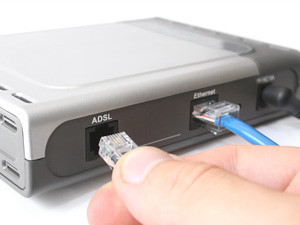
Two of SA's largest Internet service providers (ISPs) - Internet Solutions (IS) and MWeb - have welcomed the recent agreement between Telkom and the Competition Commission, calling it a step in the right direction.
However, the agreement must be enforced to make sure Telkom's pricing does become more transparent and the company charges its retail arm the same as what it prices its services to other ISPs.
On Friday, the commission said it and Telkom had agreed the telco would pay a R200 million fine, implement a functional separation between its retail and wholesale divisions, along with a transparent transfer pricing programme to ensure non-discriminatory service to its retail division and ISPs; and implement wholesale and retail pricing commitments for the next five years that should yield R875 million in savings.
The agreement, which has to be approved by the Competition Tribunal, follows a series of complaints lodged against Telkom from 2005 to 2007 by ISPs, arguing that Telkom had abused its dominance.
Flow-through benefits?
Derek Hershaw, MWeb ISP CEO, says although it is early days and all the detail of the settlement has yet to emerge, the most important aspect about the functional separation is that it is transparent so that the industry is comfortable the split is a reality.
Hershaw adds the savings should be weighted towards aspects such as IP Connect and the rental price of ADSL lines, which are big input costs.
The commission says Telkom will, over the 2014, 2015 and 2016 financial years, trim the price of wholesale services in areas such as undersea cable international lines, national high bandwidth transmission lines, access to ADSL lines via the IP Connect service and Diginet leased line access, as well as related retail products, Telkom's VPN Supreme and Internet Access.
The price reductions are weighted more heavily in favour of wholesale services, at a minimum of 70%, to bring about a more competitive market, says the commission in its statement. It notes Telkom will also ensure any price reductions are not reversed in the 2017 and 2018 financial years.
Boosting the base?
Hershaw says trimming the cost of line rentals will stimulate growth, while cutting the IP Connect price is likely to translate into savings for consumers as it may be passed on by ISPs. He adds there is no point in cutting the price of international connectivity as the sector is sufficiently competitive.
Telkom currently has 870 505 ADSL customers and a total fixed-line base of 3.8 million, down from just below four million a year ago.
IP Connect, the wholesale product through which third-party ISPs connect to Telkom's network, is responsible for the bulk of ISPs' costs to deliver Internet services to customers. According to the Internet Service Providers' Association (ISPA), this can be up to 70% of the total costs involved. In April last year, the cost came down 30%.
ISPA regulatory advisor, Dominic Cull, has said if the agreement is properly monitored and implemented, it should lead to a more competitive fixed-line Internet market. He said it should make Telkom's pricing more transparent, but needs to be enforced.
However, there is not enough detail to comment further, and there also needs to be a balance between Telkom's needs to keep some information confidential to be competitive and a transparent pricing model, said Cull. He noted it is a step in the right direction.
IS's legal manager, Marc Furman, says the terms of the settlement agreement between Telkom and the Competition Commission, as laid out in the commission's press statement of last week, appear to contain elements of an outcome which is favourable to IS and the other complainants.
"The settlement appears to put in place the necessary elements of functional separation between the wholesale and retail divisions of Telkom."
Share